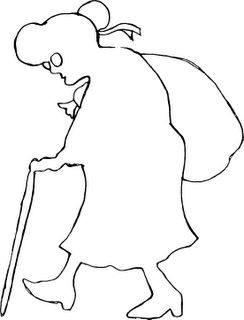…why do not all the Catholics who disagree with the Pope just get out?… Who am I—or who is anyone except the Pope—to decide what a Catholic may or may not accept as binding doctrine? …the question is based on an assumption that is not only challengeable but extremely unhealthy. It assumes that the whole test of Catholicism, the essence of the faith, is submission to the Pope… It is not a position that has a solid body of theology behind it, no matter how common it is as a popular notion… [p. 6]I have a number of friends who are active Catholics, who disagree with much of Church teaching on ordination, gays, birth control—basically the big, hot buttons. So long as they remain an indistinguishable part of the flock, neither occupying leadership positions in the Church nor serving as elected government officials, little will happen to them. It’s priests who would rise in the hierarchy, theologians who teach in Catholic institutions, writers who publish under Church imprimatur, and politicians whose votes are a matter of public record who are vulnerable to being silenced.
Saturday, June 25, 2005
So who else is Catholic?
My long-intended follow-up to this has been delayed mostly by clumsy attempts to understand the issues facing Catholic dissenters. It also seems somewhat presumptuous, as I’m not Catholic—what can an outsider know and feel? But because the Anglican Communion has been in conversation with Rome for quite some time, exploring common ground (raising some Anglicans’ hopes for reunification), it does concern me.
Garry Wills in “Papal Sin: Structures of Deceit” has nailed one piece I’ve been struggling with:
Subscribe to:
Post Comments (Atom)

3 comments:
Why don't we just get out? I can't answer for anyone but myself. A couple of times I tried to get out, and God whacked me upside the head with a spiritual 2X4—to get my attention, I suppose. I guess a Christian needs a church, and mine is the RCC. I can no more pull the RCC out of my soul than the field owner in the parable could yank out the surreptitiously sown weeds.
I like the explanation I recently read on a thread connected to an entry on Set Free (this thing won't recognize the link tag, so here's the URL: http://msongbird.blogspot.com/2005/06/lord-lord.html).
Greg (http://fatmaw.blogspot.com/) wrote:
"I thought like you for many years (about signing on to the rules when you join a church), but my parents who are Catholics have changed my mind. They are radical Catholics - the kind who won't bother with a theologian unless his/her works have been banned by the pope and the church has tried to excommunicate them. So over and over I would say to my mother 'If you don't agree w/ the pope, join a different church,' and over and over she responded 'it's as much my church as the pope's, and I have as much right to determine what kind of a church it is as he does.' For a long time I thought that this was crazy talk, but I no longer do. If you really believe that we are all children of God, and that God is active at all times and in all places, then she has got a point. All of the rules and creeds and patriarchal hierarchies and on and on and on have *nothing* to do with God. They are a mass of distractions that we humans have invented to keep ourselves from having to confront that profound and absolute mystery which is God. So it is pretty much the duty of every person of faith, in every church, to challenge those structures which serve to distract us from God rather than lead us toward God. As Christians we are called to reach out to those who, like the pope and other church leaders, have become so distracted by their own power and position that they can no longer see God; those who consequently have so little faith in God's power that they find it necessary to try and supplant it with their own. They deserve our love as much as anyone, and need it more than most."
Makes sense to me.
I think my snippet of Garry Wills' comment may be misleading about his position. He doesn't advocate leaving the RCC, but rather lays bare the theological and mental/emotional gymnastics that have brought the RCC to its current place. In the process, he affirms those faithful who stay and challenge error.
The question itself has been raised more often by Protestants, who tend to place doctrinal correctness above community, where Catholicism insists doctrine makes no sense outside the context of community.
Post a Comment